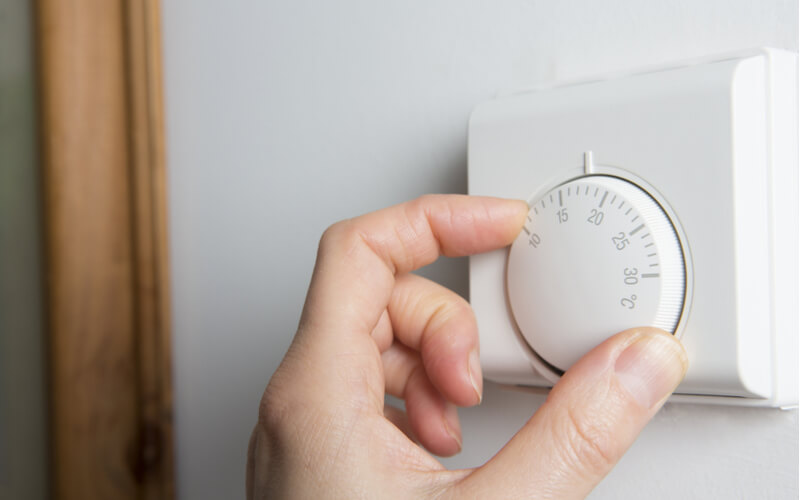Communal - General
This guide covers social landlords’ responsibilities for maintaining communal areas (external and internal) so as to reduce the risks to health and safety to residents and visitors.

External communal areas include aspects such as refuse areas, parking, communal garage blocks, paths, play equipment, landscaping and trees, among other things. Internal communal areas include aspects such as entrance lobbies, stairwells, laundry rooms and communal lounges. While these aspects are listed here, specific responsibilities, such as maintaining fire escape routes and other aspects relating to fire safety are covered in the fire safety guide. Landlords’ responsibilities for communal mechanical and electrical (M&E) installations are largely covered in the guides related to those services. Before commencing any work a risk assessment and safe system of work must be produced.
Legislation and Statutory requirements
Section 3 of the Health and Safety at Work Act 1974 (HSWA) requires employers, such as landlords, to have responsibility for the health and safety of people using or visiting their premises (in addition to their direct responsibility for employees) so far as reasonably practicable (see General Health & Safety requirements).
Landlords are responsible, under the Management of Health and Safety at Work Regulations 1999, for carrying out risk assessments for all communal areas. The Regulatory Reform (Fire Safety) Order requires landlords to carry out fire risk assessments to common parts of blocks of flats (see Fire safety).
In England the Housing Act 2004 applies to individual homes, including the licensing of houses in multiple-occupation (HMO) and other residential accommodation. Risks are assessed through the Housing Health and Safety Rating System(HHSRS).
The relevant legislation in Scotland is the Housing (Scotland) Act 2014. In Northern Ireland the Department for Social Development regulates registered housing associations under the Regulatory Framework for Registered Housing Associations in Northern Ireland 2006.
Enforcement
General health and safety requirements are enforced by HSE (see General Health & Safety requirements) but fire safety is enforced by the local Fire and Rescue Authority.
The HSE, with local authorities (and other enforcing authorities), is responsible for enforcing HSWA and a number of other Acts and Statutory Instruments relevant to the working environment in England, Wales and Scotland. Separate enforcement arrangements operate in Northern Ireland, which has its own Health and Safety Executive for Northern Ireland (HSENI).
The Environment Agency is responsible for enforcing waste management legislation, while local authorities are responsible for waste collection and disposal. The Agency has published guidance on waste for businesses and organisations, including an explanation of the different regimes in each country. The Government has also published guidance on specific legislation and enforcement regimes and on the waste hierarchy.
Housing Regulator
In England, the Regulator of Social Housing (RSH), requires registered providers to comply with its Regulatory Standards. On 1 October 2018 the RSH became a standalone public body, independent from the Homes and Communities Agency (HCA). On 11 January 2018, the HCA’s non-regulation arm adopted its new trading name Homes England.
In Wales the Regulatory Framework for Housing Associations Registered in Wales sets out the expected standards of performance (10 delivery outcomes) and what landlords are expected to do to meet those outcomes. All social landlords are required to meet and maintain the Welsh Housing Quality Standard (WHQS) as soon as possible (2020 deadline).
In Scotland, the regulatory framework is designed to safeguard and promote the interests of current and future tenants, homeless people and other people who use services provided by social landlords. It explains how the Government will regulate to protect the users of social housing. In relation to the quality of homes, social landlords are required to meet the minimum Scottish Housing Quality Standard (SHQS) by 2015. Meeting the SHQS includes complying with Technical Guide for healthy, safe and secure homes. The Scottish Housing Regulator expects compliance with all statutory and regulatory obligations.
In Northern Ireland the Department for Social Development regulates registered housing associations under the Regulatory Framework for Registered Housing Associations in Northern Ireland 2006. Regulatory Standard 3.3 states that housing associations must develop, manage and maintain good-quality homes that seek to meet people’s needs and preferences now and in the future. This includes meeting the Decent Homes Standard.
Compliance - good and efficient practice
To comply with general duty of care under HSWA, landlords should carry out, record and act upon risk assessments for each communal area. In some instances these risk assessments, such as to common parts for blocks of flats can be included in fire risk assessments. In other instances, such as external lighting, any remedial action can form part of electrical safety.
Further guidance for each communal area, with separate sections for external and internal areas, is set out below together with cross references to other pages on the NHMF good practice website.


